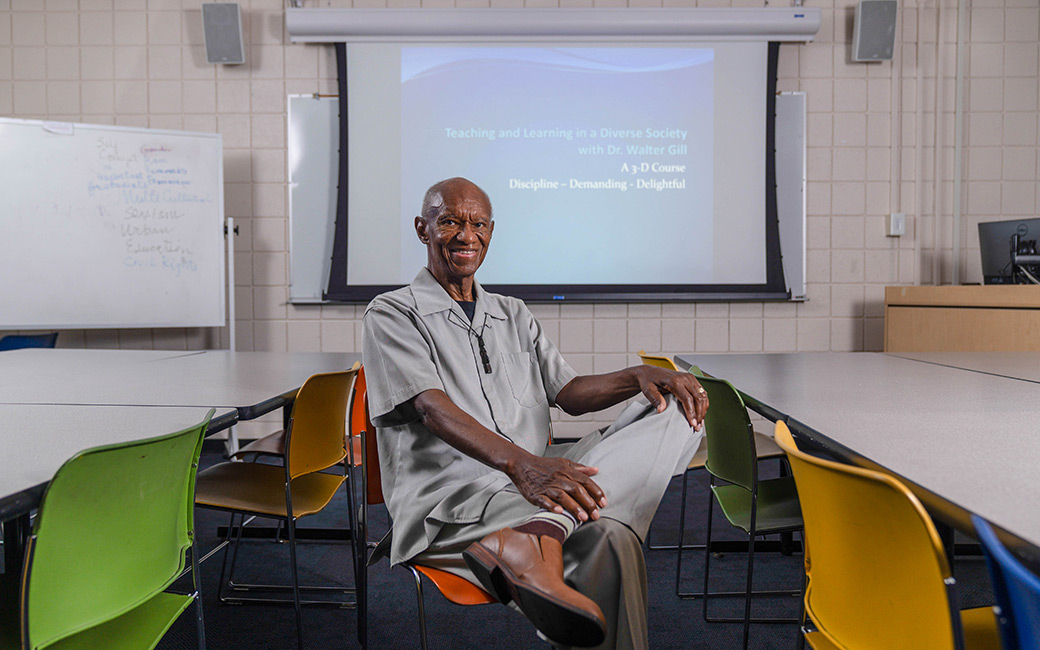A trailblazer’s swan song
After 61 years, Walter Gill is handing the reins to a new generation of educators. He’s prepared them well.
August 1, 2023

Walter Gill prefers the smaller classrooms. The ones with communal tables and not much elbow room—where the physical proximity fosters a close learning community.
For Gill, community is at the core of teaching. His 61 years as an educator have shown him relationships are the foundation for successful learning. This belief is evident in the curriculum for his “Teaching and Learning in a Diverse Society” (EDUC 203) course, for which students must interview people from a variety of ethnicities, races, orientations and abilities then present on the cultural and educational insights they gain. Many of Gill’s students are future teachers, and the assignment helps them relate to their future pupils.
“The best teachers adapt their approach to the unique needs of every classroom and every student,” Gill says. “By expanding their understanding of diversity and interacting with people from all walks of life, they gain valuable field experience for their teaching careers.”
At 85 years old, Gill has an abundance of experience to share. He was born in 1937 in Greenville, Mississippi, became the first African American to graduate from Baltimore City College in 1955, then served in the U.S. Army Corps of Engineers before starting his teaching career in 1962. Since then, he’s earned a doctorate in educational communications, written three scholarly books on urban education, taught at seven colleges and universities, and spent decades teaching and working with troubled youth. Through it all, he’s developed a firm belief in the power of education to change outcomes for students and the power of teachers to develop curriculums and connections that engage all learners.
“They say it takes a village to raise a child,” Gill says. “I believe education is the most important component of that village.”
He shares this belief, along with evidence to support it and strategies to uphold it, with his students in EDUC 203. Gill has taught the course for 14 years. This academic year will be his last.
Though Gill is planning to hang up his professorial cap, the relationships he’s built through teaching will remain as active as ever. One of his former students made him the godfather of her children. Others call regularly for his mentorship and insight. Gill’s legacy will live on in them and the thousands of students he taught. Many of them are now teachers themselves, ready to carry his relationship-first, curriculum-driven, diversity-centric model of education to a new generation of learners. They are luckier for it.